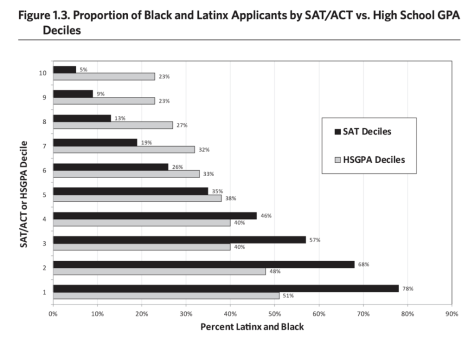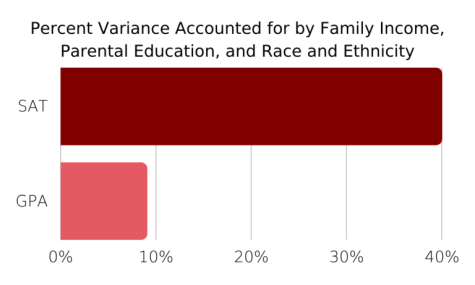Standing against the SAT
August 25, 2022
In 1923, eugenicist and psychologist Carl Brigham’s book A Study of American Intelligence unearthed an apparent revelation: White people, or the “Nordic race group,” could be proven intellectually superior to Black Americans. Through a slew of aptitude tests he created for the U.S. Army and a stint for the U.S. Bureau of Education, Brigham could test for a base of knowledge more prevalent in white communities and create a system in which they who is they would gain more access to resources to demonstrate their ‘objective’ intellect. This system, commissioned by the College Board and upheld by high schools around the globe, would be called the Scholastic Aptitude Test (SAT).
The testing system demonstrates many flaws: Questions that Black and Latin American students frequently performed poorly on were reused with the intent of continuing this pattern, according to a 2018 Teen Vogue Article. This selection would disproportionately harm students of color and further the racial gap in college enrollment, according to the National Center for Fair and Open Testing. In an attempt to combat testing bias, the College Board announced the SAT Adversity Score in Spring 2019. This metric would assess 15 factors of one’s resources and use those to benefit a student’s score, according to the New York Times. The public’s response was overwhelmingly negative, and rightfully so.
The College Board’s proposition to fairly evaluate a student’s intelligence should have never included pity points for students of color, as the Adversity Score would have implied had criticism not shut it down. To my friends at the College Board, the quickest method to place students on an equal intellectual playing field is right in front of you: close your doors.
Until the joyous, hypothetical day when we abandon the SAT, there will always be a tool, even against a historically and systemically racist program, to game this system: money. While it can’t buy happiness, money can buy a 1600, which is basically the same thing. According to a March 2019 report from IBISWorld, the test preparation industry is valued at 1.1 billion dollars. Books instructing students on how to achieve the perfect SAT score continue to sell in massive quantities online, mock tests sell for tens of dollars each, and Carl Brigham kicks his heels in his grave with glee and a sustained distaste for minorities. Not only has his racist regime survived a century– it’s an economy of its own.
A UC Berkeley study charts the disparity in grades based on class in comparison to SAT scores. While grades are influenced by a student’s class and culture, the data demonstrates SAT scores are almost decided by access to opportunity. Standardized access to resources or a new form of standardized test could close this performance gap.


In the time window of test-optional applications and a post-COVID college system, I think all signs point to saying farewell to the SAT. I’ve badmouthed the CollegeBoard and begrudgingly taken the SAT, well aware that four digits will mean a lot more than I want them to. We’re conditioned to recognize the importance of the SAT, but fail to question why. In favor of equity and a more holistic approach to evaluating a student’s intelligence, I suggest we let the SAT, like the eugenicists behind it, rest in peace.






























